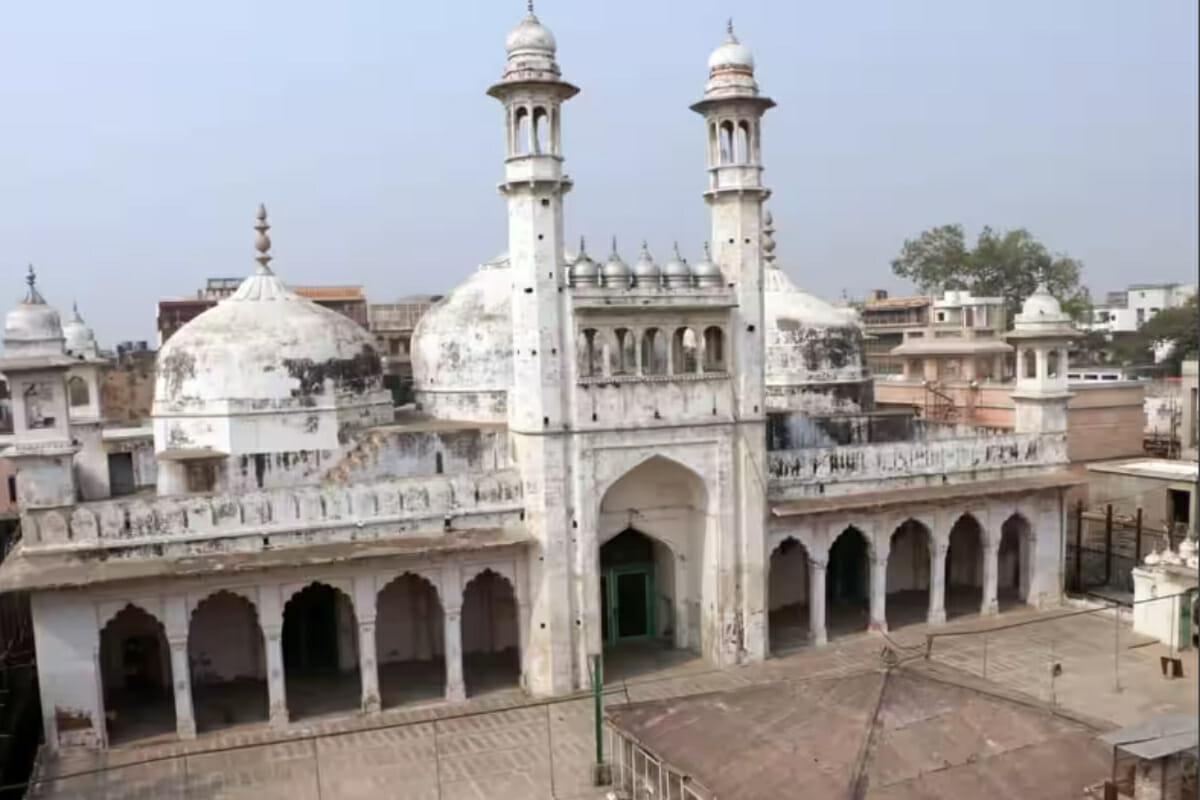Gyanvapi Mosque Survey: At Varanasi’s Gyanvapi mosque, a 30-person team from the Archaeological Survey of India (ASI) started a survey on Monday. They want to know if the mosque was constructed on a former Hindu temple. Four female litigants and four lawyers from the Hindu side are also present at the scene in addition to the ASI team. Vehicle entry has been restricted within a 2-km radius of the compound and security has been stepped up around the mosque. The mosque management committee dissented from the poll. No one from the Muslim side is present on the premises while the ASI survey is going on, according to Maulana Abdul Batin Nomani, general secretary of the Anjuman Intezamia Masjid Committee.
Gyanvapi Mosque Survey Coincides with Supreme Court Hearing
The survey is being conducted concurrently with today’s Supreme Court hearing on a petition that the mosque management committee filed. The Allahabad High Court‘s ruling upholding five Hindu women’s freedom to worship inside the Gyanvapi mosque is being challenged in the petition. In light of a recent district court ruling requiring an ASI assessment in the grounds of the Gyanvapi mosque, the Muslim side is requesting an urgent listing of the case. District Judge AK Vishvesh gave the ASI until August 4 to submit a report to the court along with recordings and pictures of the survey activities. Additionally, the court mandated that an excavation be done there “if necessary” and that GPR (Ground Penetrating Radar) equipment be used to assess the area “just below the three domes” of the building in question. A previous Supreme Court decision preserving that area of the complex, the wazukhana of the mosque, would not be surveyed since it is home to a structure that the Hindu petitioners believe to be a shivling. The Masjid Committee has contended that the Supreme Court’s ruling from May delaying the survey of a declared shivling is clearly violated by the district court’s subsequent order allowing the ASI study.
Gyanvapi Mosque’s Contentious History and Ongoing Legal Battles
A great deal of legal and historical discussion has been held around the Gyanvapi Mosque’s genesis. Hindu priests petitioned a Varanasi civil court in 1991 to be allowed to worship there, claiming that the mosque was built on top of a section of the Kashi Vishwanath temple that had been destroyed. The proceedings were suspended by the Allahabad High Court in 1998. The continuing legal dispute took a new turn last year when the Varanasi district court mandated a videographic investigation into the history of the Gyanvapi mosque. The Places of Worship Act, 1991 was being clearly violated, according to the All India Muslim Personal Law Board (AIMPLB) at the time the court order for videography was issued. Regarding the Gyanvapi mosque case, several petitions have been submitted to the Supreme Court, Allahabad High Court, and Varanasi court. These petitions aim to address a number of the conflict’s issues, such as the mosque’s purported construction by Mughal emperor Aurangzeb and the ability to worship inside the contested location. Historically, it is asserted that Mughal emperor Aurangzeb constructed the Gyanvapi mosque after destroying the Kashi Vishwanath Temple in the 17th century. The disagreement revolves around this purported affiliation with the temple, and both sides back their claims with historical data and interpretations. The Supreme Court crucially intervened in this ongoing conflict earlier in May by delaying the Allahabad High Court’s ruling. The latter had oversaw a thorough examination of the so-called shivling discovered at the Gyanvapi mosque complex, which included carbon dating.
DON'T MISS
BJP Lawmaker Challenges Houses of Worship Act, 1991 in Supreme Court
This controversy gave rise to the houses of Worship Act, 1991, which aims to preserve the status quo of 1947 for all houses of worship. BJP lawmaker and attorney Ashwini Kumar Upadhyay challenged the law in the Supreme Court last year, claiming it violates the secularism principle outlined in the Indian Constitution. The conversion of a place of worship from one sect to another is forbidden per Section 3 of The Places of Worship Act, 1991. The mosque committee contends that this act forbids the new lawsuits filed in 2021, citing the “right to worship,” and that they represent an effort to reopen a legal matter that has already been resolved.
Keep watching our YouTube Channel ‘DNP INDIA’. Also, please subscribe and follow us on FACEBOOK, INSTAGRAM, and TWITTER
